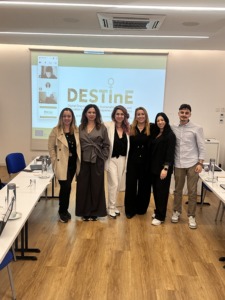Rural areas make up more than 80% of the EU’s territory and are home to 30% of its population (EU Rural Vision). Tourism is one of the key drivers of rural economies, generating around 10% of the EU’s GDP and providing employment to over 12.3 million people (European Parliament, 2024). A significant share of this activity relies on small and medium-sized enterprises operating in rural tourism. Following the COVID-19 pandemic, demand for secluded, authentic and nature-based travel experiences grew rapidly, turning rural tourism into a cornerstone of many regional economies and creating strong opportunities for sustainable growth (Eurostat, 2023).




